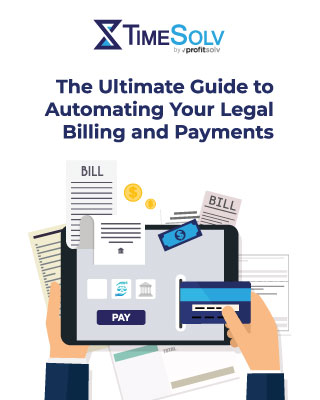Understanding the financial health of a law firm is crucial, and a key aspect of this is grasping the concept of accounts payable. So, what is accounts payable (AP)? It refers to the money a firm owes to its vendors or suppliers for goods and services acquired on credit. This essential accounting term goes beyond merely tracking debts; it is indicative of a firm’s cash flow management and its relationships with vendors.
To clarify further, the definition of accounts payable encompasses any short-term obligations a law firm has toward its suppliers. But, is accounts payable an asset? In accounting terms, it is not; rather, it is considered a liability. This is because it represents money that the firm needs to pay out. Additionally, when considering if accounts payable is a debit or credit, it is typically recorded as a credit on the balance sheet, reflecting an increase in liabilities.
Law firms encounter various examples of accounts payable in their daily operations. These typically include:
- Utilities like electricity, water, and internet services
- Specialized software licenses or subscriptions
- Marketing and advertising agencies for monthly promotional campaigns
- Office materials and equipment, such as papers, pens, and printer cartridges
- Advanced client costs, which are expenses that law firms initially shoulder on their client’s behalf, to be reimbursed by the client (i.e. filing fees, court expenses, expert witness fees, travel costs)
For legal professionals establishing their practices, a solid understanding of accounts payable is vital. It not only helps in maintaining accurate financial records but also ensures that obligations are promptly met, fostering trust with suppliers.
By understanding what accounts payable mean and its role in a firm’s financial ecosystem, law firms can better manage their finances, driving growth and long-term success.
The Ultimate Guide to Automating Your Legal Billing and Payments
To stay competitive in today’s legal landscape, law firms must embrace the power of technology, especially when it comes to billing and payments.
The best way to improve your law firm’s cash flow while also increasing client convenience is 'Automation'.
Download our free guide to improve your legal billing and payment process today!
Importance of Effective Accounts Payable Management
What is accounts payable management’s significance in keeping a law firm afloat and sustainable? Here are specific aspects of the business that can be affected by how you manage your AP.
Cash Flow
Managing your AP well helps maintain a healthy cash flow, allowing your firm to allocate resources effectively and meet financial obligations. In contrast, late payment penalties add to your operational costs, and when you accumulate multiple unpaid liabilities, you’ll be left with potential cash flow problems, complicating your firm’s ability to settle other financial commitments.
Reputation and Vendor Relationships
By settling payments on time, you can foster strong relationships with suppliers. This helps you secure a reliable supply of the goods and services you require. Conversely, consistently missing your due dates can damage the firm’s reputation and strain your relationships, making it challenging to secure favorable terms with suppliers in the future.
Financial Records
By managing AP properly, your firm can guarantee accurate financial records. Having a clear picture of your liabilities can facilitate better budgeting and forecasting, allowing for more strategic financial planning. Accurate records also ensure compliance with accounting standards and regulations, which is particularly crucial in the legal profession.
Steps and Strategies for Effective Accounts Payable Management
Larger law firms typically have a designated department responsible for managing the company’s accounts payable across the entire process. The following outlines each step of the process and offers strategies you can adopt for more effective AP management at your firm.
1. Invoice Verification
When the firm receives an invoice from the vendor, the AP department takes note of essential details such as vendor information, line items, quantities, and general ledger coding. These details are cross-checked against supporting documents like purchase orders, quotes, and delivery receipts. This verification process confirms that the billed amount matches the agreed-upon terms and that the goods or services have been received as expected.
How to optimize this step: To reduce the risk of errors and streamline the process, consider using legal billing software like TimeSolv. TimeSolv’s expense tracking feature allows you to input expenses from anywhere through the TimeSync budgeting app, even without internet access. This flexibility ensures that your team can log expenses in real-time, eliminating delays and inaccuracies associated with manual entry. Additionally, TimeSolv’s secure platform protects sensitive financial data, while its integration capabilities with existing accounting systems streamline the overall workflow.
2 Invoice Approval and Payment Authorization
Once verified, the invoice is reviewed for approval. In some cases, invoices are physically routed through the office for signatures, while in more modern setups, AP software can facilitate digital approvals. The latter provides a clear audit trail, making it a preferable approach. Following approval, payment will then be authorized. This involves scheduling the payment, determining the payment method to use, and confirming the amount.
How to optimize this step: You should have a well-defined AP policy outlining procedures for invoice processing, payment approvals, and dispute resolution. This helps the firm stay consistent, transparent, and able to hold employees accountable for any errors. To safeguard your firm against fraud and errors, regularly conduct audits and update your internal controls and audit procedures. Make sure they’re aligned with best practices. Assigning different people to handle the payment processing can also help lower the risk of fraud.
3. Payment Execution
Once authorized, the payment is processed according to the scheduled terms, and payment details are sent to the vendor. Depending on the payment method, this might involve printing and mailing checks, initiating an ACH transaction with the bank, or processing a credit card payment. Upon payment, the invoice is marked as paid, and the transaction is recorded in the company’s accounting system.
How to optimize this step: Regularly reviewing upcoming payments and comparing them against your firm’s cash flow projections helps you meet timely payments and implement better budgeting and financial planning. TimeSolv’s expense-tracking tool enhances this process by allowing you to track important KPIs for business expense entries created by your company timekeepers. You can also limit variable expenses on a project, helping you stay on budget.
4. Reconciliation and Record-Keeping
Next is reconciliation, which involves comparing the firm’s records with vendor statements to ensure that all payments have been accurately processed and recorded. This step helps identify any discrepancies, such as overpayments, underpayments, or missed payments. Once payment has been confirmed, the AP department must keep records updated to monitor the company’s cash flow, prepare for audits, and stay compliant with legal and regulatory policies.
How to optimize this step: Improve your record-keeping processes with TimeSolv’s robust expense management feature. Enjoy more accurate and efficient tracking of your company’s expenses, payments, and outstanding invoices through detailed financial reports and well-organized receipts, offering a data-backed understanding of your firm’s overheads. To learn more about the benefits of this tool, check out why your firm needs expense-tracking software.
Transform Your Law Firm’s Financial Management with TimeSolv
Don’t let administrative burdens slow down your business growth and keep you from what matters most—providing excellent legal services to your clients. By investing in TimeSolv, you can streamline your accounts payable processes and maintain error-free financial records without the hassle of manual bookkeeping.
TimeSolv’s legal bookkeeping services are designed specifically for lawyers and law firms, allowing you to focus on your core responsibilities while we handle the rest for you with our efficient and cost-effective billing and payment solutions.
The Ultimate Guide to Automating Your Legal Billing and Payments
To stay competitive in today’s legal landscape, law firms must embrace the power of technology, especially when it comes to billing and payments.
The best way to improve your law firm’s cash flow while also increasing client convenience is 'Automation'.
Download our free guide to improve your legal billing and payment process today!

















